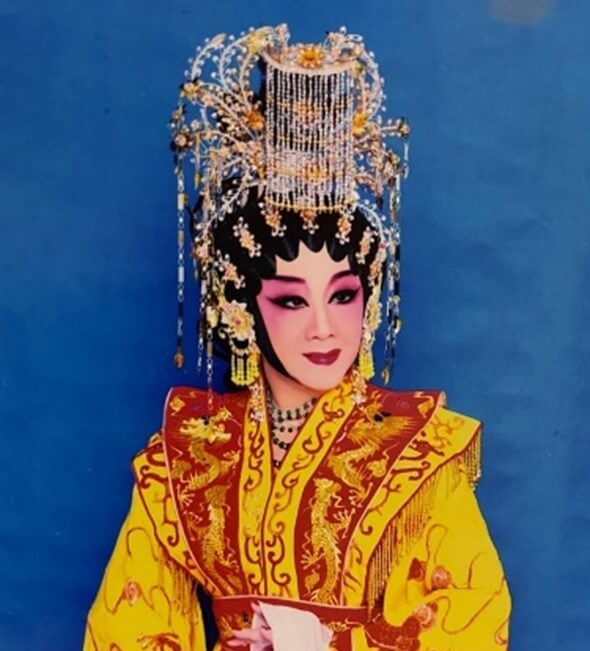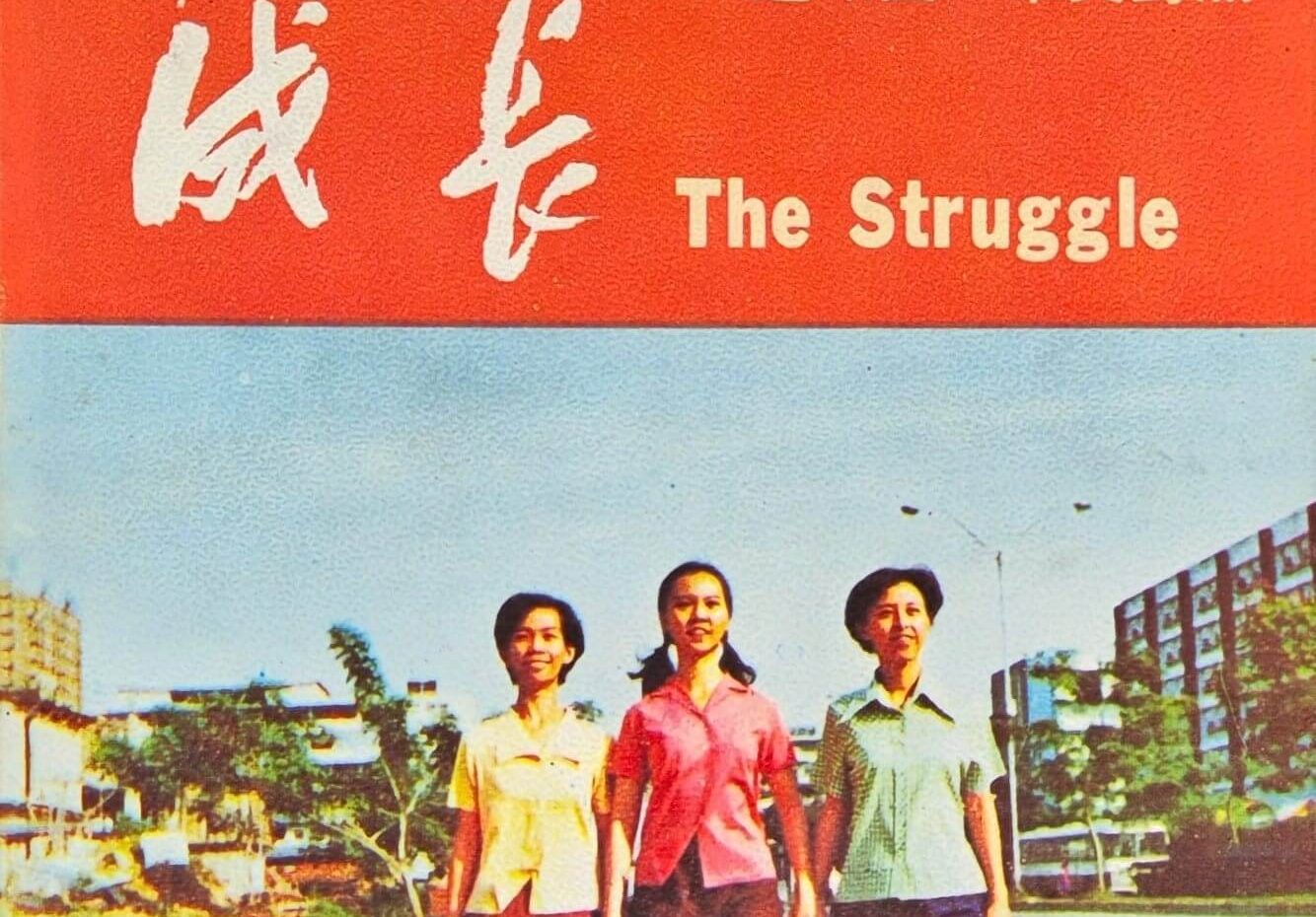Hokkien opera in Singapore
Four types of Chinese opera varieties originating from China’s Fujian province were once prevalent in Singapore: Gaojia, Liyuan, Pu Xian, and gezai opera.
What Singaporeans presently refer to as Hokkien opera actually refers to gezai and xiang opera. While originating from the same place, these two opera forms feature distinct performance styles and formats.
Gaojia opera
Sin Sai Hong Hokkien Opera Troupe played a significant role in preserving and promoting Gaojia opera in the 1950s before the troupe ventured into gezai opera. In 1982, Siong Leng Musical Association invited Chen Jia Bao (birth and death year unknown) from China to conduct Liyuan opera acting classes in Singapore. In 1987, the artists staged the traditional Gaojia opera play, Wang Xiu.1

Liyuan opera
Siong Leng Musical Association hired numerous directors, musical composers, and actors to stage large-scale Liyuan opera performances. These works included Shakyamuni Buddha (1993), The Legend of Mulian Rescuing His Own Mother (1995), The Legend of the Tragic Crane (1996), Master Hongyi (1999), as well as various xiaoxi or shorter plays, and zhezi xi or opera excerpts. In 2000, Siong Leng Musical Association halted its Liyuan opera performances to focus on promoting nanyin and related activities.
Pu Xian opera
Currently, Pu Xian opera performances in Singapore are limited to the Mulian drama series staged at Kiew Lee Tong Temple, a Hokkien Taoist temple. These performances are held once every decade. In the 1970s, Kiew Lee Tong Temple purchased suitable costumes and props from Taiwan, and organised opera shows in Singapore staged by amateur performers. Subsequently, the temple invited Pu Xian opera troupes from China to perform in Singapore when their schedules aligned.
Gezai opera and Xiang opera
Since 1990, Lorong Koo Chye Sheng Hong Temple has celebrated the Birthday of Ann Kway Sheng Hong Deity, which falls on the 28th day of the fifth lunar month, by hosting 100 days of opera performances. The occasion has become the most prominent platform for local gezai opera troupes to showcase their performances as part of the Chinese temples’ festive traditions. Opera troupes which regularly perform at the festival include Xiao Kee Lin Hokkien Opera Troupe, Ming Yang Opera Troupe, Xin Yan Ling Hokkien Opera Troupe, Ong Si Mui Opera Troupe, Sim Hong Choo Opera Troupe, Nga Sheng Hokkien Opera Troupe, Shuang Ming Feng Opera Troupe, and Hokkien Four-Seasons Spring Troupe.2
As for the Xiang opera, among the amateur artists in the local opera scene, Sim Siew Tin Xiang Opera Troupe is renowned for the wealth of experience of its performers and creative team. The troupe was formerly known as the Bukit Panjang Hokkien Kong Huay Xiang Opera Troupe. In 1986, it successfully staged the opera excerpt Lingering Farewell as its inaugural performance. Under the leadership of both the Bukit Panjang Hokkien Konghuay and troupe leader Sim Siew Tin, the troupe further staged a series of opera excerpts such as Balcony Romance (1987), Lingering Farewell (1987), and The Legend of the Grocery Store (1987). In 1992, the troupe premiered its first full-length opera, The Hatred of Zither and Sword. Subsequently, the troupe performed various Xiang opera favourites from China, such as Birthday Celebrations by Five Daughters (1994), The Emperor and the Village Girl (1996), and Justice Bao (1996), in accordance with the performance styles of China’s Xiang opera. In 2006, the opera troupe was invited to stage Courtesan Yu Tang Chun in Taipei. The play was scripted by Teo Sung Lung and composed by Fu Zi Liang.
In 2013, Sim Siew Tin left Bukit Panjang Hokkien Konghuay and founded Sim Siew Tin Xiang Opera Troupe. The operas staged by the new troupe include Seeking a Husband in the Mountain Fortress (2013), scripted and composed by Zhuang Hai Ning; Our Story, Our Opera (2014), scripted by Teo Sung Lung and composed by Zhuang Hai Ning; Hokkien musical drama Journey to Singapore (2016) scripted by Yap Kim Chye and directed by Sim Siew Tin; and Butterflies Awakening (2016) scripted by Teo Sung Lung, composed by Ng Lim, and directed by Sim Siew Tin.
In 1997, Singapore’s Chinese Opera Institute hired Li Xiu Hua from Xiamen and Hong Xiu Yu from Taipei as senior teachers to conduct classes on Xiang opera and gezai opera. In 1998, Li Xiu Hua directed the Xiang play, Ramayana, adapted by Chua Soo Pong and based on the ancient Indian epic of the same name. Li also directed other performances such as the traditional play Deep Emotions with the Little Shop (1999), and the Teochew-and-Xiang opera hybrid Fire on the Riverside Chamber (1999). The Singapore Chinese Opera Institute appointed Taipei opera performer Hong Xiu Yu as a senior teacher in 2004. Since then, she has collaborated with Chua Soo Pong to direct and produce many of the Institute’s cross-cultural gezai opera performances. Their repertoire of cross-cultural adaptations includes Ramayana (2004); Mahabharata (2006), adapted from the ancient Indian epic tale of the same name; The Doctor in Spite of Himself (2007), adapted from French playwright Molière’s comedy of the same name; and The Chalk Circle (2008), based on the Yuan dynasty playwright Li Qianfu’s work of the same name. Additionally, Chua Soo Pong and Hong Xiu Yu collaborated on Hokkien opera production, with Chua overseeing scriptwriting and Hong handling musical arrangements. These productions drew inspiration from classical Chinese literature, and included Nie Xiaoqian (2004), Painted Skin (2005), and Handan Dream (2008).

Since its establishment in 2013, Jade Opera Group (in collaboration with Chua Soo Peng) has staged numerous productions, including The General and the Witches (2013), adapted from English playwright William Shakespeare’s Macbeth; The Missing Bride (2016), based on the Indonesian legend, Tales of Prince Panji; and The Government Inspector (2022), based on Russian novelist Nikolai Gogol’s famous work of the same name. The numerous productions of Jade Opera Group have received invitations to prestigious international theatre festivals. The staging of these performances in countries such as Malaysia, Indonesia, Thailand, China, Iran, Belgium, the United States of America, and Taiwan has contributed to the promotion of gezai opera globally. For over 20 years, Hong Xiu Yu has tirelessly staged traditional opera performances, with some productions being staged more than 10 times. These beloved classics include Fan Li Hua and Xue Ding Shan, Tang Bohu Selects Qiuxiang, Emperor Zhengde Visits South China, and The Legend of White Snake. Hong has also nurtured a generation of young gezai opera performers, including Teng Su Yuin, Huang Yu Ying, One Choo Eng, Goh Poh Huay and Tan Zhen Xuan.3
This is an edited and translated version of 新加坡福建戏. Click here to read original piece.
| 1 | Chia Yen Yen, Xingerbuchuo [Blazing a trail in Nanyin]. |
| 2 | Chua Soo Pong, “Bairi daxi kailuo la” [The hundred-day opera festival has begun]. |
| 3 | Wu Yu Ting, Zong Xin Yi, and Huang Wan Quan, Xi pin zhen wei: xinjiapo fujianxi de jiupei yu xinniang (1997–2015) [A flavour of opera: The evolution and revolution of the Singapore Hokkien opera (1997–2015)] . |
Chia, Yen Yen. Xingerbuchuo [Blazing a trail in Nanyin]. Singapore: Siong Leng Musical Association, 2023. | |
Chua, Soo Pong. “Bairi daxi kailuo la” [The hundred-day opera festival has begun]. Shin Min Daily News, 3 May 2021. | |
Huang, Xiuqin. Xinjiapo nanyin chutan [Preliminary exploration into Nanyin]. Singapore: The Singapore Chinese Opera Institute, 2010. | |
Koh, Eng Soon. Xinjiapo huazu xiqu huibian [Compilation of Singapore Chinese opera]. Singapore: Xu yongshun gongzuo ting, 2019. | |
Koh, Eng Soon. Xinjiapo fujianxi (1963–2005) [Singapore Hokkien opera (1963–2005)]. Singapore: Lorong Koo Chye Sheng Hong Temple Association, 2007. | |
Koh, Eng Soon. Xinjiapo fujianxi jishi [Documentation of Singapore Hokkien opera]. Singapore: Xu yongshun gongzuo ting, 2013. | |
Wu, Yuting, Zong, Xinyi and Huang, Wanquan. Xi pin zhen wei: xinjiapo fujianxi de jiupei yu xinniang (1997–2015) [A flavour of opera: the evolution and revolution of the Singapore Hokkien opera (1997–2015)]. Singapore: Ngee Ann Polytechnic Chinese Studies, 2015. | |
Xi shuo xiang qing: Xinjiapo wujibanrang fujiangonghui xiangjutuan chengli 21 zhounian huiyilu [21st anniversary of Singapore Bukit Panjang Hokkien Konghuay Opera Troupe]. Singapore: Singapore Bukit Panjang Hokkien Konghuay Opera Troupe, 2007. | |
Yi, Yan. Liyuan shiji: Xinjiapo huazu difang xiqu zhi lu [Hundred Years Development of Singapore Chinese Opera]. Singapore: The Singapore Chinese Opera Institute, 2015. |










